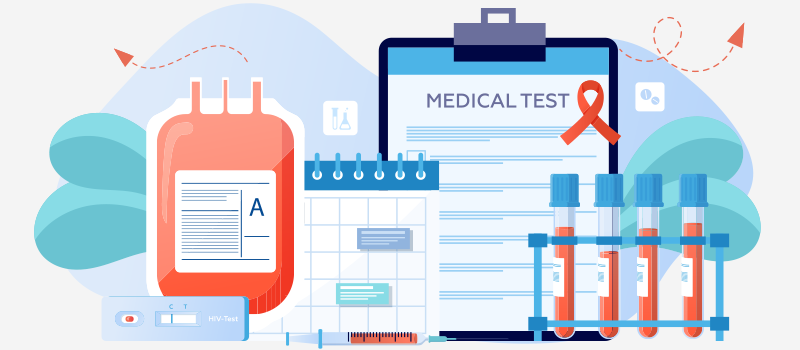What’s the Buzz
The Bee Healthy Blog
Numbness or Tingling in Hands: Causes & Treatments

Numbness or tingling in the hands and feet is a common symptom and can be very uncomfortable. It is often self-limited. For example, if you fall asleep on your arm, this may cause nerve compression and result in temporary numbness. However, tingling and numbness can also be signs of more serious underlying health conditions and nerve injuries. Left untreated, it can result in permanent numbness. Please continue reading to learn what causes numbness and tingling in the hands, how it is treated, and when you should consult your healthcare provider.
What diseases cause numbness in the hands?
Many medical conditions can cause hand numbness and tingling. These symptoms usually occur as a result of nerve damage to the peripheral nerves. However, nerve damage in the central nervous system can also lead to numbness and tingling in the hands. Here are some conditions that can make you lose sensation in your hands (numbness) or feel abnormal sensations (tingling), for which you should seek medical attention.
Carpal tunnel syndrome
This type of compression neuropathy occurs due to pressure on the median nerve as it passes through a narrow canal in the wrist called the carpal tunnel. Carpal tunnel syndrome can cause tingling and numbness in the thumb, index finger, and middle finger. Sometimes, the whole hand may feel numb.
Other types of compression neuropathies include ulnar nerve compression (nerve pressure on the ulnar nerve) at the wrist (Guyon syndrome) or elbow (cubital tunnel syndrome). These conditions cause numbness and tingling in the pinky finger and ring finger side of the hand.
Radial nerve compression at the wrist or forearm can cause sensory loss and pain at the back of the forearm, worsening when you straighten your wrist and fingers.
Peripheral neuropathy
Medical conditions such as diabetes and excessive alcohol use can result in permanent nerve damage to the peripheral nerves in the hands and feet. This can cause symptoms such as numbness and tingling along with decreased reflexes on physical examination. The numbness associated with peripheral neuropathy tends to be constant and follows a stocking-glove pattern, affecting the toes and moving up the legs to the mid-calves, followed by the fingers getting involved.
Fibromyalgia
This is a chronic disorder characterized by pain in many different parts of the body, often accompanied by tiredness and sleep problems. People with a medical history of fibromyalgia have a higher chance of developing carpal tunnel syndrome and may develop numbness and tingling in the hands.
Myofascial pain syndrome
This condition is similar to fibromyalgia and can result in aches, pains, and numbness in the hands and forearms. Although the symptoms are in the hands, myofascial pain syndrome arises in the neck and shoulder muscles due to stiffness. Frequent headaches are another symptom of this condition.
Medication side effects
Certain medications can cause numbness and tingling in the hands as a side effect. These include:
- Heart and blood pressure medications (hydralazine, amiodarone, perhexiline)
- Antimicrobial agents (nitrofurantoin, metronidazole, isoniazid, thalidomide, dapsone, chloroquine)
- Seizure medications (phenobarbital, phenytoin, carbamazepine)
- Medications prescribed for autoimmune diseases (leflunomide, etanercept, infliximab)
- Chemotherapy treatment (paclitaxe, docetaxel, vincristine, cisplatin, suramin)
- Drugs prescribed for alcohol abuse (disulfiram)
- HIV medications (stavudine, tenofovir, emtricitabine, didanosine)
- Gout medications like colchicine
- Substances like arsenic and gold
Nutritional deficiencies
The body needs B vitamins, especially vitamin B12, and other essential nutrients such as potassium and magnesium to keep the nerves healthy. Vitamin deficiencies can result in symptoms such as tingling and numbness in both hands, which may be accompanied by weakness.
Autoimmune diseases
People with an autoimmune disease that affects the nerves can develop numbness and tingling in the hands and feet. In multiple sclerosis, the immune system attacks the myelin (the protective sheath that covers nerve fibers), causing symptoms such as numbness, pain, fatigue, and vision changes. In lupus, inflammation of the nerves can cause you to feel numbness in the hands.
Stroke
Hand numbness can be a sign of stroke (decreased blood flow to a part of the brain). This is a medical emergency. Seek prompt medical attention if your hand numbness is accompanied by other symptoms such as sudden weakness or numbness on one side of the body, difficulty walking or speaking, drooping of the face, vision problems in one or both eyes, confusion, sudden severe headache, dizziness or loss of balance.
Brain and spinal cord disorders
Neurological disorders affecting the brain and spinal cord can cause tingling and numbness in the hands. For example, vasculitis (inflammation of the blood vessels) that supply blood to the nerves, injuries, hereditary neuropathies such as Friedreich’s ataxia, infectious diseases that affect the nerves such as leprosy, Lyme disease, and HIV, ruptured disk or herniated disk in the spinal column, or a tumor putting pressure on the spinal cord.
Kidney or liver disease
People with kidney or liver disease, such as cirrhosis or end-stage kidney disease, can develop tingling and numbness in the hands.
How do doctors diagnose the cause of hand numbness?
Doctors can make an accurate diagnosis of the underlying cause of tingling or numbness in the hands by performing a physical exam, including a thorough neurological exam, blood tests, nerve tests such as nerve conduction studies and electromyography, and imaging studies such as MRI and CAT scans.
How do you fix numbness and tingling in your hands?
Medical care for tingling and numbness in your hands consists of treating the underlying condition causing numbness. For example, vitamin supplements may be prescribed if diagnostic tests reveal a deficiency. Splints may be given to release pressure on the median nerve in people with carpal tunnel syndrome. Other measures, such as physical therapy, may help in relieving symptoms and preventing further complications. Additional precautions may be necessary because people with numbness are less likely to feel pain or discomfort. For example, if someone has hand numbness, care is needed when handling hot objects.
References:
- https://www.assh.org/handcare/condition/numbness-in-hands
- https://medlineplus.gov/ency/article/003206.htm
- https://medlineplus.gov/ency/article/000700.htm
- https://www.cdc.gov/stroke/signs_symptoms.htm#:
- https://emedicine.medscape.com/article/1171558-overview?icd=login_success_email_match_norm
- https://www.lupus.org/resources/how-lupus-affects-the-nervous-system#
- https://www.msdmanuals.com/en-in/home/brain,-spinal-cord,-and-nerve-disorders/symptoms-of-brain-spinal-cord-and-nerve-disorders/numbness
- https://pubmed.ncbi.nlm.nih.gov/12859721/
- https://www.pennmedicine.org/for-patients-and-visitors/patient-information/conditions-treated-a-to-z/end-stage-kidney-disease












SOCIAL